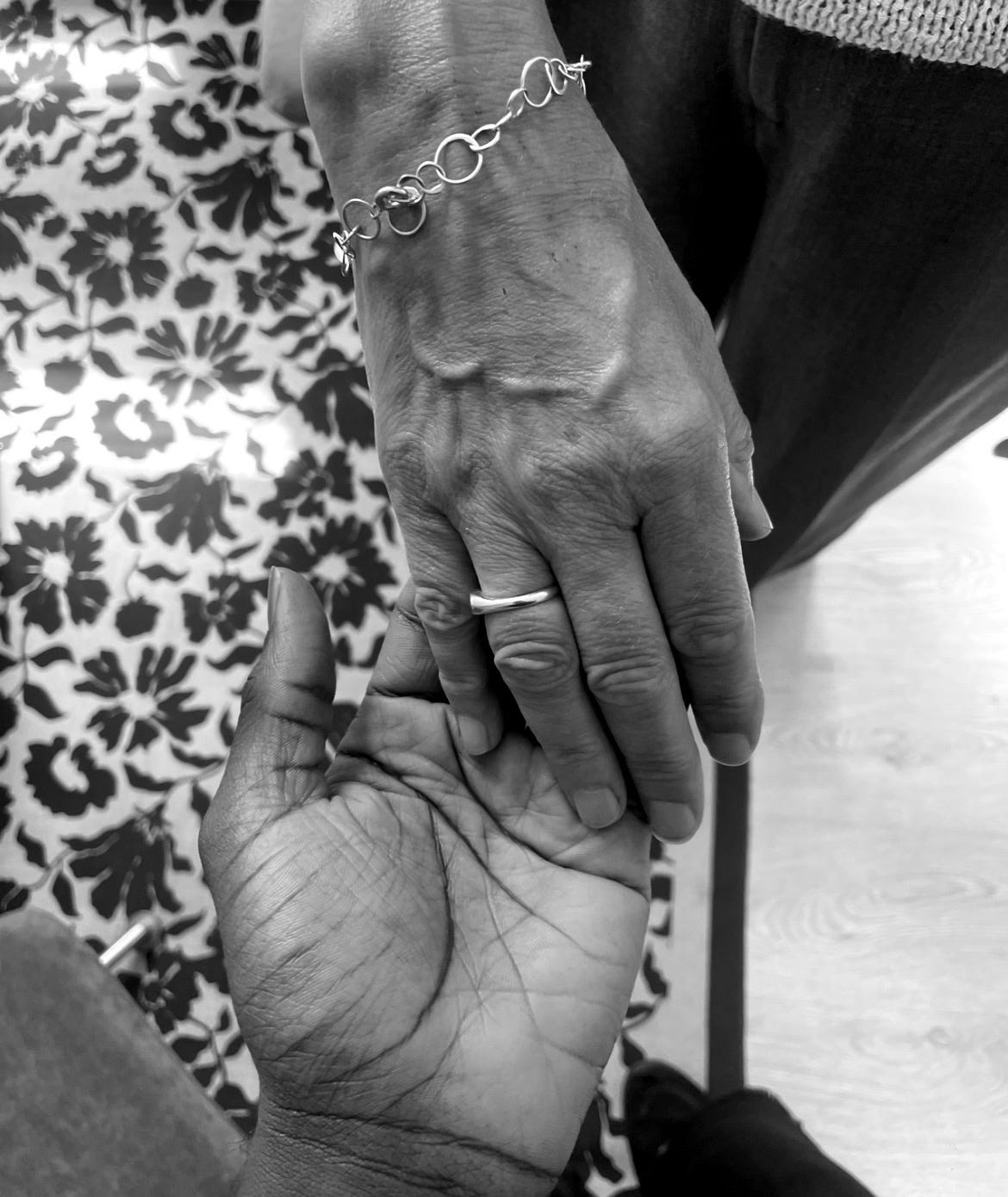Dear Friends,
I’m not entirely sure how to feel. I never imagined I’d be writing this as an immigrant, seated at my best friend’s black Japanese dining table—but here we are. I write this letter not as a cry for any further sympathy, but as a gesture toward truth. Toward clarity. Toward the kind of radical openness I’ve tried to imperfectly sustain throughout my journey with The Last Supper Project—even now, as I prepare for Dinner 125 this evening.
Today, I was officially diagnosed with Post-Traumatic Stress Disorder.
I continue my journey with EMDR next week, under the care of my psychologist.
Those four words feel both seismic and strangely anticlimactic. As if they’ve always been trailing behind me in silence, just waiting for me to turn around and finally call them by name.
There’s immense relief in the naming. A quiet liberation in being able to call the chaos by its actual f*cking name. But it also affirms a healthy and profound anger I still carry toward my rapist—currently exhibiting work in a Dutch museum named after a family that profited from slavery—and toward the math tutor who molested me during lessons. Men who took something from me, forcefully and without consent. Something I can never get back.
I plan to channel this anger into my writing, and into advocacy against such violence, in hopes of protecting other survivors.
PTSD doesn’t always arrive with sirens. Sometimes it hums softly beneath the surface. It lives in the hypervigilance, the startled reactions to kindness, the inability to exhale in certain rooms. It lives in the memory of fleeing Ghana under duress, just to live openly and loudly as a gay man. It lives in the exile of being undocumented. It lives in the fear of simply existing.
And yet, here I am. Existing anyway.
Existing, even as I seek an end to my mental suffering—however healing is granted.
I want to make something clear: being formally diagnosed with bipolar disorder at 16, and now with PTSD at 28, brings with it a new perspective. I’ll be reflecting, as treatment continues, on how to navigate this new reality. I don’t yet know what it means for my future—but I’m willing to take the necessary steps.
So, this is where I begin again.
I want to thank my wonderful psychologist—who has worked in the field for over 20 years—for her professionalism and her compassion. Her soft-spoken, gentle ability to speak through my pain is something I deeply cherish. After trying others in the past, I’m grateful she chose to take me on. I’m also thankful to the Dutch-Brazilian friend in Utrecht who recommended her, especially when I was hitting roadblocks and confronting endless waitlists.
Because what no one talks about in the journey of “healing by appointment” is the sacrilegious amount of waiting involved. And the quiet agony of struggling in the in-betweens.
Finally, if you’ve ever held space for me—through your presence at dinner, through your messages, your patience—I want to say thank you. I didn’t always know how to receive it, but I felt it. And now I’m learning how to receive more fully, and how to give in return.
This diagnosis is not a definition. It is not the totality of who I am—and I will try to resist the seductive trap of over-identifying with it, as I’ve sometimes been tempted to do with my bipolar disorder.
It is a beginning.
And as always, I’ll keep searching for meaning, from dinner table to dinner table, with kind strangers who aren’t afraid to sit in discomfort—or laugh at the absurdity of life over a warm, unpretentious meal.
Tonight, I’m deeply looking forward to dinner with an Iceland-based South African couple, who have chosen to make me a part of their evening.
Warmly,
Joseph Awuah-Darko





Have the words ‘Post Traumatic Stress Disorder’ really been trailing behind you in silence? You have been associating yourself with them, as well as the CPTSD label interchangeably, for some time. I am also a bit confused as to how you would be diagnosed directly after an assessment (which happened 2 days earlier than stated initially). That is not standard protocol for any mental health practitioner, especially not one with such a tenure. Aren’t you an undocumented immigrant? That would mean, since you admittedly have not started the process to gain citizenship, that there is no way you could have even a primary care physician in the Netherlands, let alone a psych. With her being recommended by a “Dutch-Brazilian” in Utrecht, I assume your psych is local to the Netherlands, which wouldn’t explain your ability to work with her. Lastly, when did your clinical depression diagnosis at 16 become a bipolar disorder diagnosis? Those are very different conditions. You wrote on a LinkedIn post that you were diagnosed with depression with no mention of bipolar, yet you make it the focal point of almost every aspect of your life. If you are really committed to radical openness, you’ll clear these things up without issue. I look forward to gaining a better understanding.
P.S. How was volunteering at the soup kitchen? There was no mention or even a single photo posted, which is out of character for you.
Joseph I have also recently received a PTSD diagnosis, and like you it felt both validating and just like “yeah I know.” I think the external acknowledgment goes a long way and now having access to resources will be nice too. The journey continues for mental help assistance but these little steps do feel freeing somehow.